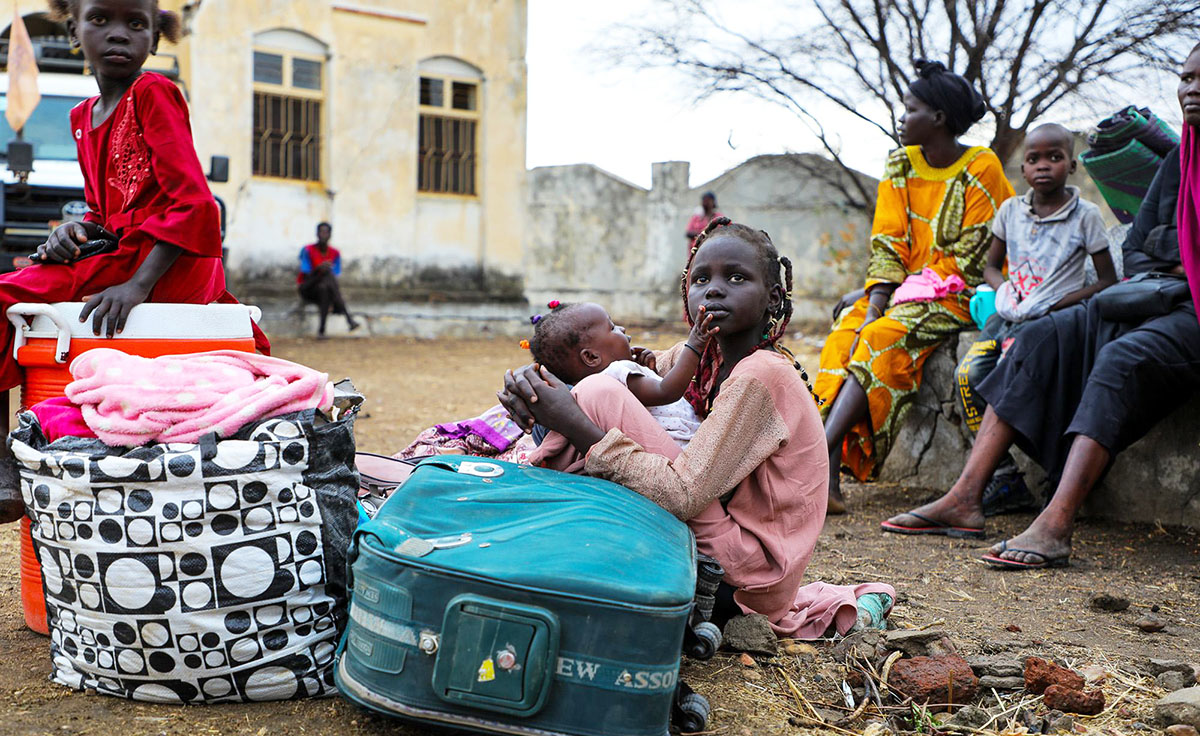
“Its like planning for the apocalypse”, relief personnel in the Sudan says
Follow-up moatinoon
As if the end of the world was approaching, humanitarian personnel in the Sudan describe the situation as conflict widens, supply lines are disrupted, civilians are displaced internally and externally and families spend several days without eating.
Since fighting erupted on 15 April between the army led by Abdel Fattah al-Burhan and the Rapid Support Forces, led by Mohamed Hamdan Dagalo, known as Hemeti, a series of intertwined conflicts have erupted throughout the country. This has displaced at least 5.4 million people.
In addition to their armed struggle for power, which is concentrated in the capital Khartoum, communal violence again erupted in the Darfur region, where Sudanese Arab groups targeted the Masalit community.
We are witnessing two separate conflicts, the first, which is of great interest, between Burhan and Hamidi in Khartoum, and the second, the most sinister, that in Darfur.
At the centre of the violence that has plagued Western Darfur State is competition for land, water and other scarce resources between non-Arab farming communities and nomadic Arab cattle herders.
According to the United Nations, more than 60 percent of Western Darfur States population experienced food insecurity even before the recent outbreak of violence.
There have been waves of ethnic conflicts in the past few years. But none were as long-lasting and systematic as in Western Darfur from April to mid-June. The United Nations says that since 2019, hundreds of non-Arab residents in the region have been killed in attacks by the Rapid Support Forces and Arab militias.
Tibor Nagy, the former head of the U.S. State Departments Africa Bureau in Donald Trumps administration, noted with Foreign Policy last week that Sudanese between militia conflict and harsh humanitarian conditions.
He said: There are more and more militias involved. the human dimension will also worsen .
From danger to despair
The humanitarian official expressed concerns that fighting between the army and the Rapid Support Forces (RSF) south-east of Khartoum would reach Jazeera State s breadbasket and the state between Blue and White Nile which many of the capitals inhabitants were displaced after the outbreak of fighting, In addition to the presence of 1.1 million Southern Sudanese refugees in White Nile State, they may have no choice but to return to their country.
On Tuesday, WFP warned of a looming emergency hunger crisis on the Sudan-South Sudan border, at a time when families fleeing fighting in the Sudan continue to cross the border.
In a statement, WFP stated that its data shows that of the nearly 300 thousand people who arrived in South Sudan in the last five months, one in five children is malnourished, and 90 per cent of families say they spend several days without eating.
On Tuesday, the WFP Country Director for South Sudan, Mary Ellen McGruarty, said that we are seeing families moving from one disaster to another as they flee the danger in Sudan to find despair in South Sudan.
Its like trying to plan for the end of the world.
Fighting around Khartoum and its Omdurman city displaced some 2.8 million people from their homes. Last month, nearly half of Omdurmans population left only one area after being warned by the Sudanese Armed Forces that their neighbourhood had been bombed. Twenty people were killed in aerial bombardment, including 10 who died while watching a football match.
Aisha Ibrahim, 56, sent three of her sons to the eastern city of Suakin, while she, her husband and another child fled to another military-controlled area of Omdurman.
She said: I cannot afford to travel with my entire family to eastern Sudan. Were divided now. For the first time in my life I am separated from my young children, but for their safety I will do anything”.
Ibrahim and her family only took from home clothes, leaving behind furniture and other property. She said: You cannot carry anything or you will be looted in the streets by the army or the RSF. They are all thieves.
A new food security assessment by WFP shows that 90 per cent of returning households suffer from moderate or severe food insecurity.
Screening data collected at the border crossing also revealed that approximately 20 per cent of children under five years of age, and more than a quarter of pregnant and lactating women, suffer from malnutrition.
McGruarty stressed that the humanitarian situation of returnees was unacceptable, stressing that the programme was suffering to meet the growing humanitarian needs at the border.
Source: https://www.alhurra.com/sudan/2023/10/03/

